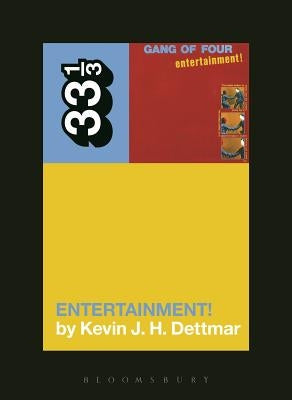Before you leave...
Take 20% off your first order
20% off
Enter the code below at checkout to get 20% off your first order
Discover summer reading lists for all ages & interests!
Find Your Next Read

Following hard on the explosion of British punk, in 1979 Gang of Four produced post-punk's smartest record, Entertainment For the first time, a band wedded punk's angry energy to funk's propulsive beats--and used that music to put across lyrics that brought a heady mixture of Marxist theory and situationism to exposing the cultural politics of everyday life.
But for an American college student from the suburbs--and, one expects, for many, many others, including British youth--Jon King's and Andy Gill's mumbled lyrics were often all but unintelligible. Political rock 'n' roll is always something of an oxymoron: rock audiences by and large don't tune in to be lectured to. But what can it mean that a band that made pop songs as political theory actively resisted making that theory legible? Coming to terms with the impact of Entertainment requires us to take the mondegreen--the misunderstood lyric--seriously. The old joke has it that the title of R.E.M.'s debut album should have been not Murmur, but Mumble: true, so far as it goes. But that's the title, too, of rock 'n' roll's Greatest Hits compilation--and that strategic inarticulateness itself, which creates such an important role for the listener, has an important politics.Thanks for subscribing!
This email has been registered!
Take 20% off your first order
Enter the code below at checkout to get 20% off your first order